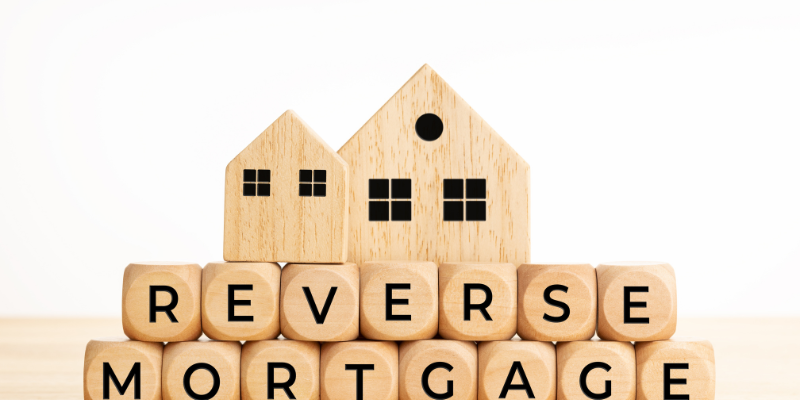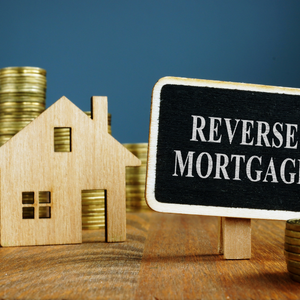
The Benefits and Drawbacks of Selling a Reverse Mortgaged Property
Like all transactions involving a reverse mortgage, selling a house under this scheme in Washington State has certain pros and cons that a seller should evaluate. One major pro is that the reverse mortgage balance can possibly be paid off using the proceeds from the sale, simplifying financial obligations and maybe even leaving some surplus funds.
This process allows homeowners to relocate as they please without the burden of debt tied to the property. Moreover, selling a home under these conditions is favorable after a significant appreciation in property values, allowing sellers to take advantage of increased equity.
Nevertheless, significant cons also exist. As is often the case with a sale under these circumstances, the entire procedure tends to be convoluted, involving coordination between lenders, real estate professionals, and lawyers familiar with reverse mortgages.
Depending on the provisions of their contract, sellers may face net selling restrictions or penalties, and, of course, there are the usual unpredictable conditions of Washington State that would affect timing and price.
After considering all of these in context with marketing conditions, a seller’s strategy can culminate in a profitable outcome, although logic would dictate that there are also significant impacts regarding timing.
When determining probable earnings, however, the remaining balance on the reverse mortgage and closing costs must also be added to the calculations. A homeowner needs to understand these things to make reasoned choices about relinquishing a property with a reverse mortgage, and Sell With Isaac can help you make informed, confident decisions every step of the way.
Key Steps to Selling a Home with a Reverse Mortgage
Selling a home with a reverse mortgage in Washington State requires homeowners to take specific steps in a particular sequence to ensure a successful sale. It is very important to reach out to the lender first to find out the precise figure owed for the reverse mortgage, including all interest and fees that have accrued.
Understanding this figure is helpful for setting a competitive listing price for the home. After that, it is important to look for a real estate professional who deals with such property types since they have a better understanding of how to tackle the problems that may arise.
Look through the rest of the tasks that Washington State has provided regarding reverse mortgages make sure to confirm before offering the house. After these steps, addressing the necessary repairs and proper staging will increase the home’s market appeal.
As offers come in, thoroughly assess each one and make sure that the offer will cover the outstanding balance of the reverse mortgage as well as the closing costs and any other expected returns. During the process, it is always best to have open lines of communication with those involved, from the lender to real estate professionals, to guarantee the sale adheres to the requirements set out by Washington State for homes with reverse mortgages.
Legal Considerations When Selling a Home with a Reverse Mortgage

Navigating the sale of a home with a reverse mortgage, particularly in Washington State, requires careful attention to the legal aspects involved. For homeowners over the age of 62, a reverse mortgage provides the opportunity to tap into home equity with no monthly payments. However, selling such a home comes with its own set of complex legal responsibilities.
To begin with, the balance of reverse mortgage debt must be cleared by the time of sale, which usually means paying off the debt with the sale proceeds. To comply with local legal requirements and avoid pitfalls, enlisting the services of a real estate attorney experienced in Washington State law is vital.
Moreover, for the sake of avoiding legal problems, the understanding of any encumbrances on the property is legally critical. Additionally, sellers should keep in mind the federal stipulations through the Home Equity Conversion Mortgage (HECM) program, if applicable, as this may affect the manner in which the sale is conducted.
Ultimately, working with professionals ensures that legal obligations associated with your interests are entered around during the entire process..
Financial Implications of Selling Your House with a Reverse Mortgage
The financial impacts of selling a house with a reverse mortgage in Washington State are profound and must be considered carefully. Upon selling your home, the remaining balance on the reverse mortgage will need to be paid off. This usually entails the loan principal, interest that has accrued over time, and any fees associated with the loan.
Reverse mortgages are intended for older adults, as they allow accessing home equity without requiring monthly payments. It is important to be aware that, upon selling the property, this debt will need to be settled. Within Washington State’s real estate context, determining estimated sale proceeds is critical in assessing whether they can surpass the reverse mortgage balance clearance cost.
Homeowners must also take into account closing costs as well as real estate commission fees, which can diminish the homeowners’ expected value from the sale, therefore impacting the net profit. If selling your home within Washington State, you will want to obtain a qualified real estate professional or financial advisor who specializes in the regulations regarding reverse mortgages in Washington—and more broadly—real estate law to ensure all legal aspects are covered during the sale.
Tax Implications of Selling a Property with a Reverse Mortgage

Selling a home with an existing reverse mortgage in Washington State has financial consequences that homeowners need to pay special attention to. In a sale scenario, the reverse mortgage balance, which comprises the principal amount, accrued interest, and related loan fees, is settled.
Reverse mortgages offer homeowners aged 62 and above an option to access funds tied to their equity; thus, selling their home becomes an issue since it pays off the mortgage. In Washington State, as in all other states, determining the market value is equally as important as working out the proceeds to be received from the sale to ensure that it exceeds the payable reverse mortgage amount.
Additionally, homeowners should be aware that selling may come with tax implications, particularly if the property has appreciated significantly or if capital gains tax rules apply.
Homeowners are also reminded that there are other closing costs and commissions related to paying the realtor that can further erode net proceeds from the sale. Navigating such complexities requires the counsel of a qualified real estate attorney or financial advisor who is well-versed in Washington State laws and reverse mortgages.
Essential Documents Required for Selling a House with a Reverse Mortgage
While selling a home with a reverse mortgage in Washington State, it is important to have all pertinent documents to facilitate a seamless transaction. The first document you need is the payoff statement from your reverse mortgage lender, which elaborates on the remaining loan balance alongside any accrued fees.
You should also have your original reverse mortgage agreement as it will explain the sale impacting terms and conditions. Moreover, securing a current property appraisal is equally important as it will assist in evaluating the market value of the home and ascertain if it exceeds the loan balance.
In addition, a title report is important to mitigate any liens or encumbrances on the property that must be dealt with prior to closing. Don’t forget to include recent tax documents alongside proof of homeowner’s insurance, as these reinforce compliance with the reverse mortgage terms.
Having all communication with your lender on hand helps address any and all concerns that may come up regarding the loan status. Organizing these documents reduces friction while selling your home in Washington State with a reverse mortgage.
Common Challenges When Selling Homes with Reverse Mortgages and How to Overcome Them
In Washington State, selling a house that has a reverse mortgage comes with complications that are not usually experienced under normal conditions. One common problem is making sure that the loan balance is paid in full when the home is sold. This can be problematic if the home value is less than what it was at the time of purchase, or if a lot of interest has accrued over time.
Owning a home comes with a lot of responsibilities, one of which is paying the loan amount in full. Hence, homeowners need to perform a thorough analysis by comparing the current market conditions to the enforcing loan amount. Along with this, other challenges include figuring out the overly intricate laws and paperwork that coincide with reverse mortgages.
Sellers should ensure that they know a real estate broker who is fully aware of the housing market in Washington State, so during the selling process, they can provide the right support regarding the reverse mortgage. Along with this, a wide range of understanding is required when it comes to lender timelines, so coordination of a smooth loan payoff process is necessary. Coordinating with lenders also requires a thorough explanation, as every delay impacts the closing process.
Additionally, homeowners should be cognizant of possible appraisals that affect the house value while having the house listed for sale, which makes it imperative to have a well-established rapport with their real estate professionals, along with financial advisors. Having multiple experts guide the process allows for a strategic approach throughout—and can help you sell your home for cash in Castle Rock or nearby cities.
How Do I Sell My Home If I Have a Reverse Mortgage?
Selling a home with a reverse mortgage in Washington State is a carefully structured process. Homeowners must know that the balance of the reverse mortgage will have to be paid off in full as part of the home’s sale.
To begin the process, the homeowner must contact their reverse mortgage lender to get a payoff statement. This document provides the exact sum owed. A real estate professional who specializes in reverse mortgages and is well-informed on the Washington State real estate market is essential.
Such agents will assist in competitively pricing and effectively marketing the home. Once an offer is made, ensure that the offer exceeds the remaining balance on the loan and any additional fees.
You will receive any leftover equity after the remaining mortgage balance is settled, provided you fully pay off the reverse mortgage. Also, consult a financial advisor or an attorney specializing in reverse mortgage laws in the state to simplify any legal or tax-related concerns.
These strategies will allow you to sell your home even with a reverse mortgage and sell your home for cash in Vancouver or nearby cities.
What Happens When a House with a Reverse Mortgage Is Sold?
Understanding the specific steps and consequences that come with selling a house with a reverse mortgage in Washington State is vital. Reverse mortgages enable homeowners aged 62 and older to access a portion of their home equity by converting it into cash without the need to sell their property.
The repayment of the reverse mortgage loan using the proceeds from the sale of the house is a non-negotiable obligation that must be fulfilled in order to sell the home.
In Washington State, it is customary for sellers to contact their bank to obtain a payoff statement. This document outlines the exact balance owed on the account. After paying off the reverse mortgage, the seller is free to use any leftover funds as they wish.
Having a clear picture of all closing costs and taxes that may arise from the sale of real estate in Washington State is equally important. Working with an industry professional who specializes in real estate matters—and especially those involving reverse mortgages—can prove tremendously helpful. An expert will ensure compliance with all federal regulations, as well as state-specific laws, providing valuable assistance throughout the process.
When selling a house with a reverse mortgage in Washington State, the terms “Planning” and “Expert Consultation” go hand-in-hand.
What Is the 95% Rule on a Reverse Mortgage?

In the context of Washington State, selling a house with a reverse mortgage requires special attention to the “95% Rule”. This provision governs the sale of a house under reverse mortgage terms and protects the homeowner from liability exceeding 95% of the home’s appraised value at the time of sale.
Essentially, in situations where the remaining debt on a reverse mortgage significantly surpasses the home’s market value, the homeowners or their heirs are entitled to sell the property at 95% of the property’s appraised value. This is true even when that amount is lower than the reverse mortgage balance. This approach minimizes the financial burden on the seller and streamlines transactions, enabling them to pay off the debt without needing to spend more to settle the debt balance.
For Washington residents who are selling their houses under these conditions, understanding local real estate laws governing the interaction of the 95% rule with state laws can help achieve a smoother sale while complying with federal laws alongside state regulations.
What Is the Cost Basis When Selling a Home with a Reverse Mortgage?
Maximizing your financial return from selling a home with a reverse mortgage in Washington State hinges on accurately understanding the cost basis. The cost basis generally includes the purchase price of the property as well as any notable improvements or redevelopment made throughout the years.
It is important to remember that selling a home with a reverse mortgage requires careful allocation of all fees, including interest that has accumulated on the mortgage throughout the years. Such costs can influence your net proceeds when you decide to sell the home.
As in any transaction, Washington State has its own specific regulations that sellers need to be aware of as well as possible tax consequences concerning capital gains. A local real estate expert who understands reverse mortgages as well as the local market can help in calculating the home’s cost basis, thus ensuring the client receives maximum benefit from the sale.
Need to sell your home but have a reverse mortgage? Sell With Isaac specializes in helping Washington State homeowners like you navigate the process. Whether you’re looking to sell quickly, avoid costly repairs, or want a hassle-free experience, we’re here to make it simple. We offer fair cash offers, handle all the paperwork, and ensure a smooth transaction. Have questions or ready to get started? Contact us at (360) 207-4133 for a no-obligation offer today.
Helpful Washington Blog Articles
- Sell A Mold-infested House In Washington
- Sale Of A Washington Home With Unpermitted Work
- Seller Legally Back Out Of A Contract In Washington
- Selling Your Home By Owner In Washington State
- Prevent Foreclosure On Your Washington Home
- Documents For Selling A Home In Washington State
- Appraisal Required Repairs For Washington Homeowners
- Selling A Fire-damaged House in Washington
- Washington State Inheritance Laws For Real Estate And Property
- Selling A Washington Home With Foundation Problems
- Selling A House With A Reverse Mortgage In Washington
- Navigating The Sale Of Inherited Property With Multiple Owners In Washington

